President's Message: Why FDOA was Created / Where are We Now
David C. Jones
Funding through the Brain and Spinal Cord Injury program allows us to serve this targeted population. However, it is very limited in scope. The needs for and benefits of providing recreation opportunities is prevalent in all disability types and people of all abilities. FDOA does not have a funding source that allows us to serve the developmental disability population, which is a group that represents the largest need. Not only for therapeutic purposes, but recreation also plays an important role in the development of the individual. It is a matter of fact that people of all ages and abilities benefit. We now know that physical activity enjoyed through outdoor recreation activities can be an important part of a healthy lifestyle. Our research and healthcare professionals are now preaching the needs and benefits of exercise for health maintenance and disease prevention for our entire population. We, and they know that people with disabilities may need a focused effort and assistance to enjoy the recommended levels of activity. Another one of our F DOA programs that has not been given as much recognition and appreciation for its value is our ALLOUT program. This very important but unfunded program is based on the very reason that the Florida Disabled Outdoors Association was created. Our preamble and long-range objectives are the basis for just about everything that we do. It may appear that this program is only about the outdoor adventures and recreation programs that we provide like the hands helping anglers fishing event. However the reality is that much time and effort is put into to pursuit of our long-term objectives. The list of projects and collaborations that the F DOA is involved with is extensive and I will not be able to share them now. However, I would like to mention a couple of current activities of interest. One is our assistance with the Big Bend Scenic By-Way project that will be hosting a conference and demonstration day at Wakulla Springs State Park on December 8th. We are involved with an accessibility and inclusion effort with this project. I will also be providing a session on disability sensitivity and outdoor recreation inclusion to a group of Boy Scouts on December 28 in the Tallahassee area. We will be continuing with our involvement with the DEP in creating the next 5 year strategic plan for the State Comprehensive Outdoor Recreation Plan (SCORP). We will also be participating and involved with the planning for a family fun day with the Get Outdoors organization. This event will include a fun walk and a 5K run at Tom Brown Park on Saturday, February 25, in Tallahassee. There will be more on that event and other activities later. We will be updating the all-out program section on our website and will begin providing more information about activities. Please take note of our original preamble and long-range objectives. It will provide you with insight into who we are and what we do to promote and provide the very important opportunity for people of all abilities to enjoy the benefits of outdoor recreation. Active leisure for life! Executive Director's Message: Holiday Blues? Exercise will make you happier!
Laurie LoRe-Gussak, MBA, IOM, CAE
Doing something positive to manage anxiety or depression is a healthy coping strategy. Trying to feel better by drinking alcohol, dwelling on how badly you feel, or hoping anxiety or depression will go away on its own can lead to worsening symptoms.” More At Florida Disabled Outdoors Association, we want to help you find an activity that will be fun. For me, if I am enjoying the activity, I am much more likely to get out of bed early to go do it. You can find potential activities at www.fdoa.org/resources. Please share your success stories with on Facebook! I really want to hear from you! Para-Badminton for People of ALL Abilities including People with a Brain or Spinal Cord Injury
Randy Flagler, Recreation Management Intern
Para-badminton is a sport that you may just be hearing about for the first time. Popularized in Europe, para-badminton is looking to gain traction here in the United States and Florida. To help spread the word about the game, Florida Disabled Outdoors Association is partnering with internationally-renowned coaches to host a para-badminton clinic at the 2017 Tallahassee SportsAbility!! This partnership is historic in that the clinic will be the first of its kind in Florida. The headliner will be Coach Jose Reina of Spain’s national para-badminton team. He has coached the team to 5 world championships in places such as South Korea, China, Thailand, and Guatemala. Coach Federico Abadia Hernandez will also join him in Tallahassee to assist in spreading the sport. Jose and Federico offered insight to the world of para-badminton. Jose explained that he has been involved with badminton in Spain since 1985. Starting in 1998, Jose began his coaching career in para-badminton. He helped organize the 2001 World Championship in Spain. In addition, he has won 5 World Championships and 5 European Championships, all from 2002-2011. Reina made history in 2002, traveling to the Dominican Republic to host the first para-badminton clinic held in the Americas. Both Reina and Hernandez have evolved to the level of hosting clinics worldwide. Reina says: “Everywhere I’ve hosted a clinic, people have had fun. It’s easy to pick up and all you need is the proper equipment.” Now, para-badminton has been added to the list of Paralympic sports. Approved 2 years ago, countries are now starting to develop their own talent in time for the 2020 Paralympic Games in Tokyo. While some athletes have Paralympic gold on their radar, you can have recreational gold on yours. Reina discussed just how easy it is to start playing. One of the main differences para-badminton employs from other adaptive sports is that the limitations on who can play are relaxed. Most, if not all, persons with disabilities can enjoy this sport. For competitions, there are several different classes one can be placed in. These typically depend on how mobile a person is. There are 2 wheelchair classes, 3 standing classes, and a class for people of short stature. But, for recreational enjoyment, it’s anybody and everybody together having fun. Reina and Hernandez hope that the sport gains more players, whether competitive or recreationally, here in the United States. FDOA and the coaches’ partnership at SportsAbility aims to bring heightened interest in para-badminton at the local and national level. So, pick up a racquet, grab a friend, and volley the birdie today! English / Spanish The Social Impact of the Paralympics: How the game makes a difference?By Tiantong Liu
Do the Paralympic Games have a deep social impact to the world? Obviously YES. The 2008 Beijing Paralympic Games are a prime example of how the Games can affect a society. The event has changed China’s approach and attitude towards disability, making the society more inclusive for the country’s estimated 83 million people living with disabilities. Prior to the Games, the country was less accessible. After winning the bid to host the 2008 Paralympics, the government took action to improve the lives of people with disabilities. New legislation on accessibility was passed and, in the seven years leading up to the Games, China spent more than $150 million—equivalent to the last 20 years’ investment in accessible infrastructure—on making 14,000 facilities accessible throughout the country. On 1 July 2008, the amended Law of the People’s Republic of China on the Protection of Persons with Disabilities came into force. It affirms that the State and society must take measures to improve accessible facilities and provide necessary information in order to enable equal participation in social life for people with an impairment. Thanks to the Paralympic Games, people with disabilities now receive more respect and attention. They can enjoy a better social status, improved social security, better educational opportunities and easier access to employment. After the London 2012 Paralympics, a BBC poll showed that 79% of non-disabled people in UK believe attitudes have changed towards people with disabilities since the Paralympics. The poll also showed that 75% of non-disabled people felt more positive about the role of people with disabilities in the society. The survey found 76% of people with disabilities agreed. Globally, the London 2012 Paralympic Games were watched by a television audience of 3.8 billion people, providing a big step for the continuously growth of the Paralympic Movement. Finally, the interest in future events in the society grew from 27% to 43%. The past 2016 Rio Paralympic became another great success in the history of the Games. It’s been described as ‘a catalyst for social change’ by Sir Philip Craven, IPC President. Ahead of the Rio 2016 Paralympic Games, close to $1 million has been spent on making many of the city’s major tourist attractions accessible. The entrances to 10 popular Rio locations have been resurfaced with approximately 4,000 square meters of accessible pavements and 5,831m² of concrete. New transportation infrastructure built for the Games is also accessible for all, underlining how winning the right to stage the Paralympic Games can be a starting point for transforming a city. These cases above are some examples of how the Paralympics can make a difference for a city, a country or even the world. I believe that this trend will continue in 2018 PyeongChang Winter Paralympics and 2020 Tokyo Paralympics. In my opinion, the Paralympic Games have shattered negative stereotypes of people disabilities, delivering positive role models and heroes. The 56-year-old event has shown that people with disabilities can stand up and be counted, something everyone needs to be aware of. That is the most significant social impact of Paralympics. That is the magic of disabled sports.
|
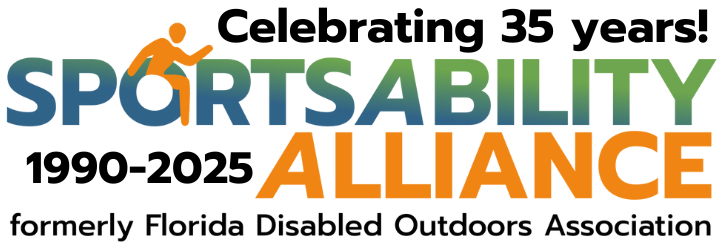
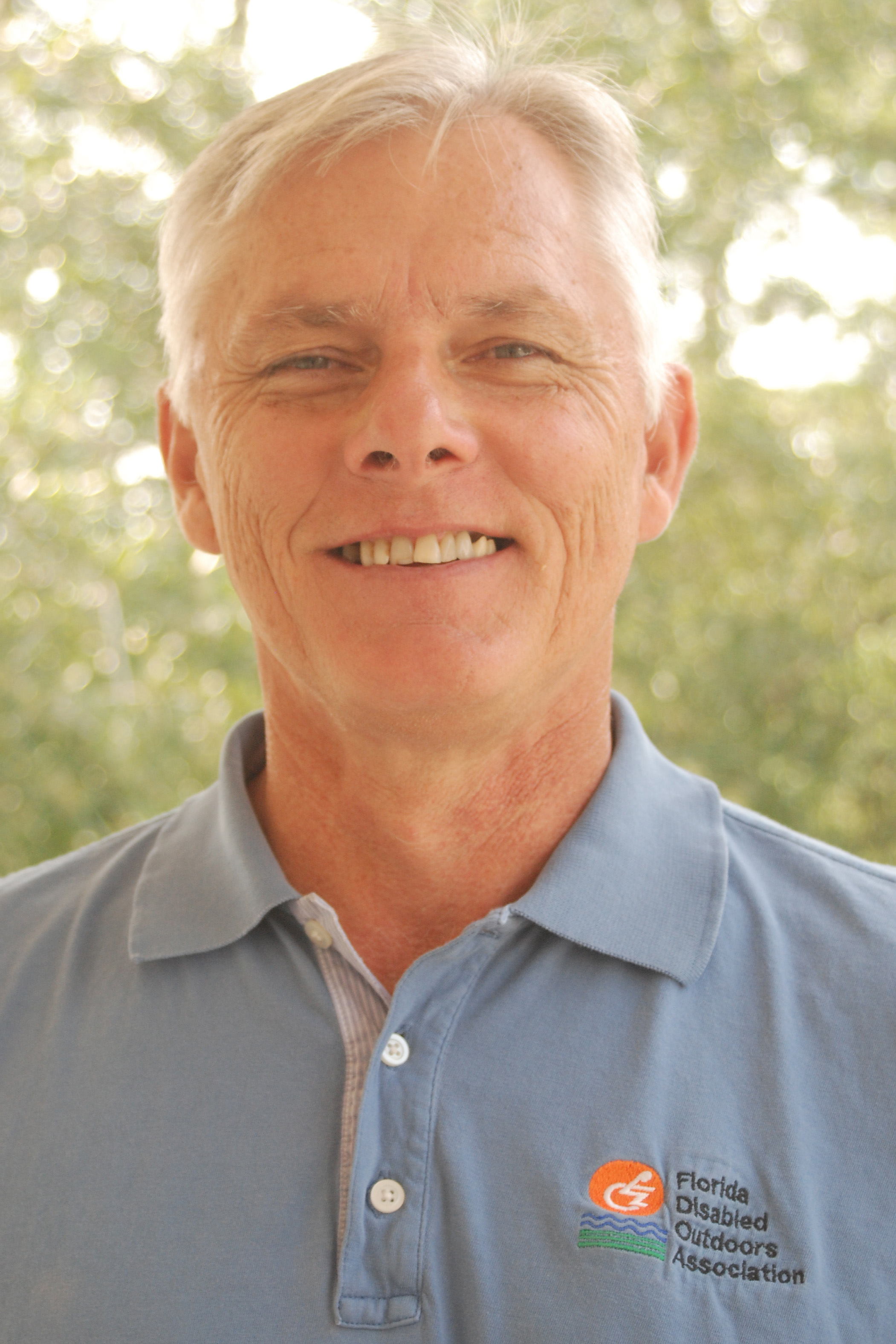 The Florida Disabled Outdoors Association (FDOA) was created way back in 1990 to be a community-based outdoor therapeutic recreation organization. The original purpose was to enhance the lives of people with disabilities by advocating and providing outdoor recreation as a rehabilitation service. We have been very successful in that role despite the downturn of therapeutic recreation in the healthcare industry. Our healthcare crisis had led to a dramatic reduction in the availability of therapeutic recreation (TR) services. Our community-based approach has been able to sustain that needed effort and to keep the needs and benefits of recreation and active leisure available for many persons with disabilities. We continue to provide a very valuable service for survivors of brain and spinal cord injuries here in Florida with a community reintegration project through a contract with the Florida Department of Health. The therapeutic value of outdoor recreation is well documented as an important component to helping people get well, be well, and to stay well. We know that through creative education, motivation, diverse recreation, and the participation in outdoor leisure opportunities, brain and spinal cord injury survivors are enjoying related health benefits we also know that they are able to prevent further secondary health conditions. Physical activity is a key component to disease prevention and helps with weight control. Participation in recreation also provides great mental benefits with the increase of self-esteem and self-confidence we see a decrease in depression and a reduction of anxiety. The social and community benefits of outdoor recreation are well documented.
The Florida Disabled Outdoors Association (FDOA) was created way back in 1990 to be a community-based outdoor therapeutic recreation organization. The original purpose was to enhance the lives of people with disabilities by advocating and providing outdoor recreation as a rehabilitation service. We have been very successful in that role despite the downturn of therapeutic recreation in the healthcare industry. Our healthcare crisis had led to a dramatic reduction in the availability of therapeutic recreation (TR) services. Our community-based approach has been able to sustain that needed effort and to keep the needs and benefits of recreation and active leisure available for many persons with disabilities. We continue to provide a very valuable service for survivors of brain and spinal cord injuries here in Florida with a community reintegration project through a contract with the Florida Department of Health. The therapeutic value of outdoor recreation is well documented as an important component to helping people get well, be well, and to stay well. We know that through creative education, motivation, diverse recreation, and the participation in outdoor leisure opportunities, brain and spinal cord injury survivors are enjoying related health benefits we also know that they are able to prevent further secondary health conditions. Physical activity is a key component to disease prevention and helps with weight control. Participation in recreation also provides great mental benefits with the increase of self-esteem and self-confidence we see a decrease in depression and a reduction of anxiety. The social and community benefits of outdoor recreation are well documented.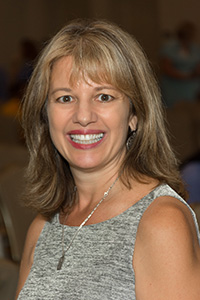 We are entering the holiday season. While that can mean a festive atmosphere and fun, it can also lead to stress and potentially depression. Most of us have a tendency to partake in the food goodies more than usual during the holidays. That can increase feelings of sadness and depression. One of the best ways to reduce stress and the probability of depression is through regular exercise. This is true for people of ALL abilities.
We are entering the holiday season. While that can mean a festive atmosphere and fun, it can also lead to stress and potentially depression. Most of us have a tendency to partake in the food goodies more than usual during the holidays. That can increase feelings of sadness and depression. One of the best ways to reduce stress and the probability of depression is through regular exercise. This is true for people of ALL abilities.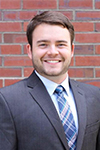
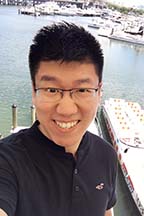 One month after the 2016 Rio Paralympics, the positive attitudes towards people with disabilities have not faded. Back to Rome in 1960, 400 athletes from 23 countries competed together which is known as the first Paralympics in the history of human beings. This September, the biggest Paralympics Games ever took place in Rio de Janeiro with 4,350 athletes from 170 countries competing in 22 sports.
One month after the 2016 Rio Paralympics, the positive attitudes towards people with disabilities have not faded. Back to Rome in 1960, 400 athletes from 23 countries competed together which is known as the first Paralympics in the history of human beings. This September, the biggest Paralympics Games ever took place in Rio de Janeiro with 4,350 athletes from 170 countries competing in 22 sports.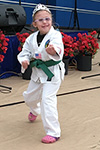 Tired of the commercialism of the holidays? Think about the #GivingTuesday!
Tired of the commercialism of the holidays? Think about the #GivingTuesday! 
